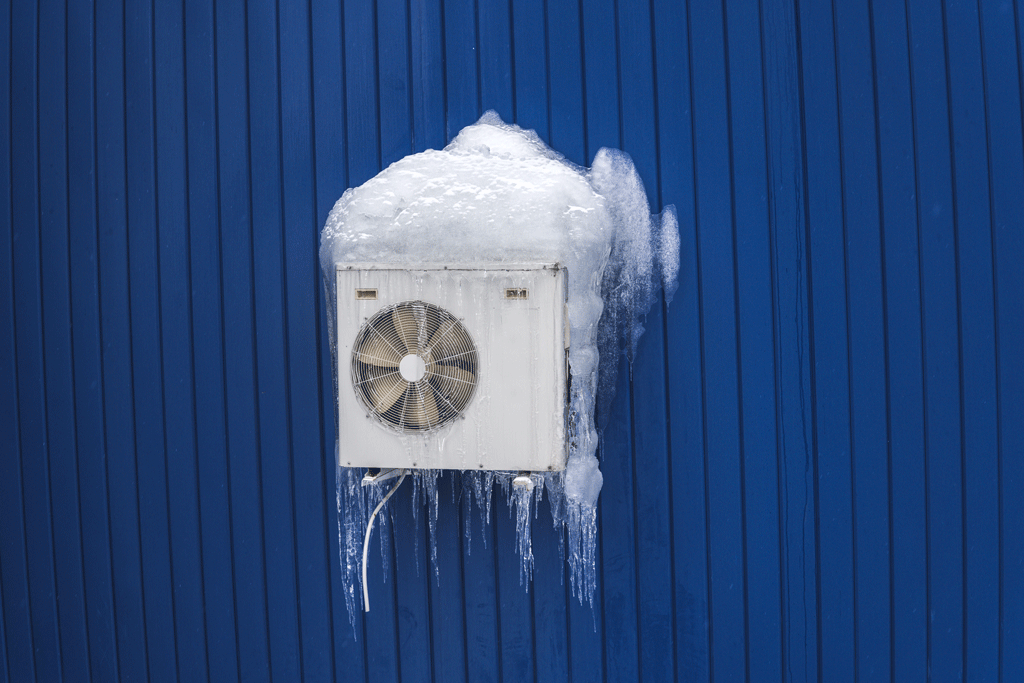Quick Fix: Emergency Heating and AC Repair Solutions

Have you ever found yourself in the grip of a heating or AC emergency?
It’s a situation that can not only disrupt your comfort but also pose a risk to your health and safety. In this article, we delve into the world of emergency heating and AC repair, a service that becomes a lifeline when your systems fail unexpectedly.
In this article, you’ll find an in-depth exploration of emergency heating and AC repair services. We’ll guide you through understanding what constitutes an emergency, how to handle it, and the best ways to find reliable repair services.
Plus, we’ll share valuable tips to maintain your systems and prevent future crises.
A Detailed Explanation
When your heating or AC system breaks down, it’s not just an inconvenience—it’s an emergency. But what exactly is emergency heating and AC repair?
It’s a specialized service designed to address and resolve urgent HVAC issues that occur without warning and require immediate attention.
What is Emergency Heating and AC Repair?
Emergency heating and AC repair services are a critical lifeline when your home’s comfort system hits a snag that can’t wait for a regular appointment.
Imagine it’s the coldest night of the year and your furnace decides to take a break, or a scorching summer afternoon and your AC whispers its last cool breath.
These aren’t just scenarios that disrupt your comfort; they can quickly escalate into real threats to your safety and well-being, particularly for the very young, the elderly, or those with certain health conditions.
Emergency Heating and AC Repair is the rapid response team for your HVAC system.
It’s the assurance that no matter the hour, a skilled technician can be at your doorstep, ready to diagnose and fix the problem. These emergency services extend beyond mere convenience; they are about restoring safety and normalcy to your household.
When you call for an emergency repair, you’re not just getting a quick fix.
You’re accessing a professional service that understands the urgency of your situation. These experts come equipped with the tools and parts necessary to handle most issues on the spot. They’re trained to work under pressure and deliver solutions that not only fix the immediate problem but also ensure your system is robust enough to handle the season’s demands.
Moreover, Emergency Heating and AC Repair technicians are well-versed in a variety of systems and models, making them adept at addressing your specific needs.
They can provide temporary solutions to keep you comfortable until a more permanent repair or replacement can be done, if necessary. This service isn’t just about the repair; it’s about peace of mind, knowing that help is available at any time to tackle sudden malfunctions and restore your home’s comfort swiftly and efficiently.
In essence, emergency heating and AC repair services are your round-the-clock guardians against the unexpected, ensuring that your home remains a sanctuary of comfort regardless of what the temperamental weather or fickle HVAC systems have in store.
Is this conversation helpful so far?
Understanding HVAC Emergencies
The Spectrum of HVAC Emergencies
When we talk about Emergency Heating and AC Repair, it’s important to recognize the spectrum of what constitutes an HVAC emergency.
It’s not always a dramatic breakdown; sometimes, it’s a subtle yet sudden change in performance that signals a serious problem.
An emergency could be anything from your furnace failing to ignite, leaving you shivering in the dead of winter, to your AC unit leaking refrigerant, turning your home into a sweltering greenhouse during a heatwave.
These issues can significantly affect your home’s temperature and compromise the air quality, potentially leading to health risks for residents, especially those with respiratory conditions.
The Risks of Delayed Action
In the face of an HVAC emergency, time is of the essence.
Delaying repairs can lead to more than just discomfort. In extreme weather conditions, a lack of adequate heating or cooling can pose serious health risks, particularly for the vulnerable segments of the population like the elderly or those with chronic illnesses.
The urgency for Emergency Heating and AC Repair services becomes about more than just restoring comfort; it’s about averting the dangers that come with being exposed to severe temperatures.
Also read: 9 Warning Signs You Need Air Conditioning Service
The Importance of Prompt Repair Services
This is where the critical nature of prompt repair services comes into play. When your HVAC system goes awry, you need a solution, and you need it fast.
Emergency repair services are not a luxury; they are a necessity for those moments when your system fails you without warning. The goal of these services is to respond quickly, diagnose the issue accurately, and implement a fix that not only resolves the immediate problem but also ensures the long-term reliability of your system.
The Role of Professionalism in Emergencies
Professional emergency repair technicians are the unsung heroes in these scenarios. They understand that when they’re called upon, the situation is dire.
Their training prepares them to handle a wide array of emergencies with the precision and calm needed in high-stress situations. They’re not just fixing a machine; they’re restoring safety and comfort to your living space.
This level of service is what sets apart true Emergency Heating and AC Repair services from standard repair work.
Understanding HVAC emergencies is about recognizing the broad range of issues that can occur, the potential risks associated with delayed repairs, and the importance of swift, professional service to ensure the safety and comfort of your home.
Photo By Anton Dios at Shutterstock
Signs You Need Emergency Repairs
When it comes to Emergency Heating and AC Repair, knowing the warning signs that indicate a need for immediate professional attention can be the difference between a quick fix and a costly, full-system breakdown.
Here are some critical indicators that your HVAC system is in distress and requires emergency services:
1. Sudden Loss of Heating or Cooling
The most obvious sign that you need emergency repairs is a complete loss of heating or cooling capabilities. If your furnace or AC stops working abruptly, it’s a clear signal that something is wrong. This isn’t just about comfort; in extreme temperatures, this can quickly become a health hazard.
2. Unusual Noises or Smells
HVAC systems are designed to run smoothly and quietly. If you start hearing banging, screeching, or grinding noises, it’s a sign that there are internal issues that need immediate attention.
Similarly, unusual smells like burning, mustiness, or a sharp chemical odor can indicate serious problems such as electrical issues or mold growth within the unit, both of which require urgent repairs.
3. Non-Responsive to Thermostat Adjustments
If your heating or cooling system doesn’t respond when you adjust the thermostat, it’s a sign that the communication between these systems is compromised.
This could be due to a variety of issues, including electrical problems or a malfunctioning thermostat itself.
4.Visible Leaks or Water Damage
Any signs of leakage or water damage around your HVAC unit are cause for concern.
Leaks can be a symptom of a refrigerant leak, which not only impairs your AC’s efficiency but is also hazardous to the environment. Water pooling around your furnace can indicate a condensation leak, which can quickly lead to water damage and mold growth if not addressed promptly.
5. Ice Build-Up on the Unit
In the case of air conditioners, ice formation on the coils or the unit itself is a red flag.
This could be due to low refrigerant levels, poor circulation, or malfunctioning components. Ice can cause further damage to the system if not dealt with quickly.
6.Frequent Cycling or Running Longer Than Usual
If your system is turning on and off more frequently than usual, or seems to be running continuously to maintain temperature, it’s a sign that it’s not operating efficiently. This could be due to a faulty thermostat, a clogged filter, or a more serious internal issue.
7.Elevated Energy Bills
A sudden spike in your energy bills without a corresponding increase in usage is a subtle yet telling sign that your HVAC system is not operating as efficiently as it should be. This inefficiency can often be attributed to an underlying issue that requires emergency repair.
Recognizing these signs and acting swiftly by calling in Emergency Heating and AC Repair services can prevent further damage to your system, save on potential costs, and, most importantly, keep your home safe and comfortable.
Also read: Signs You Need To Seek The Attention Of An AC Repair Company
How to Find a Reliable Emergency Heating and AC Repair Service
In the throes of an HVAC crisis, the caliber of the repair service you choose can make all the difference. Here’s how to ensure you’re selecting a reliable Emergency Heating and AC Repair service that can handle the urgency and complexity of your situation:
24/7 Availability
First and foremost, a dependable emergency repair service must be available around the clock.
HVAC emergencies don’t wait for business hours, and neither should the service tasked with fixing them. Look for providers who offer 24/7 support and can dispatch a technician to your home at any hour.
Rapid Response Times
When you’re in a situation where every minute without heating or cooling feels like an eternity, a quick response is crucial.
A service provider’s ability to offer prompt assistance is a testament to their understanding of the emergency at hand. Check for services that guarantee fast response times and have a track record of sticking to them.
Proven Expertise in Emergency Repairs
Emergency Heating and AC Repairs require a different set of skills than routine maintenance.
You need a technician who is not only experienced but also specifically skilled in handling high-pressure emergency situations. Look for service providers with a team of certified professionals who specialize in emergency repairs and have a wealth of experience in diagnosing and fixing complex HVAC issues quickly and effectively.
Well-Equipped with Tools and Parts
A reliable emergency repair service will have a well-stocked inventory of common (and not-so-common) HVAC parts and the latest tools to handle any repair.
This preparedness ensures that they can address most issues on the first visit, reducing the need for follow-up appointments and getting your system up and running without unnecessary delays.
Positive Customer Reviews and Testimonials
In today’s digital age, customer reviews and testimonials are invaluable when assessing the reliability of a service provider.
Look for a company with a strong reputation in the community, evidenced by positive feedback and testimonials from past clients. These insights can give you a sense of the provider’s ability to deliver quality service under pressure.
Transparent Pricing and Communication
During an emergency, the last thing you want is to be surprised by hidden fees or unclear communication.
A trustworthy service provider will be upfront about their pricing and communicate clearly what is included in their emergency repair services. They should provide a detailed estimate before beginning any work, ensuring you’re informed and consenting to the service terms.
Professional Affiliations and Accreditation
Reputable emergency repair services often have professional affiliations and are accredited by industry organizations. These affiliations indicate a commitment to adhering to best practices and staying updated on the latest HVAC technologies and repair methods.
By ensuring these criteria are met, you can have peace of mind knowing that the Emergency Heating and AC Repair service you choose is equipped to restore your home’s comfort quickly and efficiently, with the professionalism and expertise your emergency situation demands.
Also read: Don’t DIY It! Call A Professional AC Repair Company Instead
Preventative Measures in HVAC Emergencies
Preventing an HVAC emergency is always preferable to dealing with one. By taking proactive steps, you can often avoid the discomfort and expense of emergency situations.
Here’s how to implement effective preventative measures:
Scheduled Inspections
Regularly scheduled inspections by a professional are the cornerstone of HVAC maintenance. These check-ups can uncover potential issues before they escalate into emergencies.
Ideally, inspections should be conducted biannually, in the spring and fall, to ensure your system is prepared for the extreme temperatures of summer and winter.
Cleaning and Replacing Filters
One of the simplest yet most effective preventative measures you can take is to regularly clean or replace your HVAC filters.
Dirty filters restrict airflow, causing your system to work harder, which can lead to overheating and failure. Filters should be checked monthly and typically replaced every 90 days, or more frequently if you have pets or suffer from allergies.
Ensuring Proper System Operation Before Peak Seasons
Before the onset of peak heating and cooling seasons, it’s crucial to test your system to ensure it’s operating correctly.
This includes listening for unusual sounds, checking for consistent temperature output, and ensuring that the system cycles on and off properly. Addressing any issues before they become pressing can save you from a mid-season breakdown.
Sealing Ductwork
Leaky ducts can significantly reduce your HVAC system’s efficiency, causing it to work harder and increasing the risk of a breakdown.
Have your ductwork inspected for leaks and ensure they are properly sealed to maintain system efficiency.
Upgrading Insulation
Proper insulation helps maintain your home’s temperature, reducing the burden on your HVAC system. Check that your home is well-insulated, including areas like attics, basements, and crawl spaces, to prevent heat loss in the winter and heat gain in the summer.
Installing a Programmable Thermostat
A programmable thermostat can help maintain consistent temperatures and reduce the strain on your HVAC system by adjusting the temperature when you’re not home. This not only prevents unnecessary wear and tear but can also lower your energy bills.
Educating Household Members
Educate everyone in your home about the proper use of the HVAC system. This includes setting reasonable temperatures, understanding the signs of potential issues, and knowing when to call for professional help.
Preparing for Extreme Weather
If extreme weather is forecasted, take additional steps to protect your HVAC system. This might include clearing debris from around outdoor units, checking for secure insulation, and ensuring your home is properly sealed from drafts.
By implementing these preventative measures, you can significantly reduce the likelihood of facing an Emergency Heating and AC Repair situation.
Regular maintenance not only extends the life of your HVAC system but also ensures it runs efficiently and effectively when you need it most.
Photo By zhu difeng at Shutterstock
Top 5 Tips for Handling Emergency Heating and AC Repair Scenarios
When your HVAC system goes haywire, it’s a race against time to restore comfort and safety.
Here are the top five tips for handling HVAC emergencies, ensuring you’re prepared to act swiftly and effectively.
1. Prioritize Safety
If you suspect a gas leak or encounter any dangerous signs, prioritize safety by evacuating the area and contacting emergency services.
2. Turn Off the System
To prevent further damage, turn off your HVAC system. Locate the emergency shut-off switch or circuit breaker to safely deactivate the power supply.
3. Contact Professional HVAC Services
Reach out to qualified HVAC professionals who are experienced in handling emergencies. It’s crucial to describe the situation in detail to get the right help on the way.
4. Document and Communicate
While waiting for professional help, document the problem and any unusual occurrences. This information will be valuable for the technician and for insurance purposes.
5. Ensure Proper Ventilation
In cases of suspected gas leaks or poor indoor air quality, open doors and windows to improve air circulation until help arrives.
Remember, tackling Emergency Heating and AC Repair scenarios requires expertise and training, so reaching out to professionals is crucial for a timely and effective resolution.
Navigating Emergency Heating and AC Repair Scenarios
When your heating or cooling system suddenly stops working, it can feel like a crisis, especially during extreme weather conditions.
Understanding how to navigate Emergency Heating and AC Repair scenarios can help you manage the situation effectively until professional help arrives.
Recognizing an HVAC Emergency
Emergency Heating and AC Repair situations often present themselves with little to no warning. Recognizing the difference between a standard repair need and an emergency can save you time and money.
An emergency typically involves immediate risks to property, health, or safety. This includes situations like the smell of burning from your HVAC unit, which could indicate an electrical issue, or a furnace that’s not igniting in freezing temperatures, posing a risk of frozen and burst pipes.
Responding to an HVAC Emergency
Once you’ve identified that you have an Emergency Heating and AC Repair need, the first step is to ensure the safety of all occupants in the home.
This may involve turning off the HVAC system to prevent further damage or potential hazards.
Next, contact a trusted HVAC emergency service provider. While waiting for the technician, avoid using alternative heating or cooling methods that could be unsafe, such as open flames or unventilated generators.
The Role of HVAC Emergency Services
Emergency Heating and AC Repair services are specialized to respond to urgent HVAC issues that cannot wait for regular business hours.
These services are equipped to handle a wide range of problems, from furnace failures in the dead of winter to AC breakdowns during a heatwave. They prioritize these calls to ensure that your emergency is addressed as quickly as possible, often arriving on-site within hours of your call.
Preparing for HVAC Emergencies
Preparation is key to handling Emergency Heating and AC Repair scenarios. This includes having a plan in place before an emergency arises.
Keep the contact information of a reliable HVAC emergency service provider handy, and know the location of your HVAC system’s shut-off switches. It’s also wise to have an emergency kit with blankets, flashlights, and batteries in case of a power outage associated with your HVAC emergency.
After the Emergency Repair
Following an Emergency Heating and AC Repair, it’s important to understand the cause of the issue and any steps you can take to prevent future emergencies.
Discuss with your technician about any maintenance plans they offer, which can help keep your system running smoothly and may prevent the need for emergency repairs down the line. Additionally, consider upgrading older systems to more reliable, energy-efficient models to reduce the risk of unexpected breakdowns.
By breaking down the process into these steps and understanding the importance of each, homeowners can feel more in control during an Emergency Heating and AC Repair situation.
It’s about being proactive, informed, and ready to act when the unexpected occurs.
Enhancing Home Comfort with Emergency Heating and AC Repair
The comfort of your home heavily relies on the proper functioning of your heating and air conditioning systems. When these systems fail, especially without warning, it can disrupt your life significantly.
That’s where Emergency Heating and AC Repair services come into play, ensuring that your home environment returns to its optimal state as quickly as possible.
The Impact of HVAC Emergencies on Home Comfort
A well-maintained HVAC system does more than just regulate temperature; it contributes to the overall air quality and comfort of your living space.
When an emergency strikes, it’s not just the temperature that’s affected. Humidity levels can become unbalanced, and air circulation may be compromised, leading to discomfort and potential health concerns.
Quick and efficient Emergency Heating and AC Repair services are vital to restore not only the temperature but also the overall ambiance of your home.
Innovative Solutions in Emergency Repairs
Today’s Emergency Heating and AC Repair services are more advanced than ever. Technicians can employ innovative diagnostic tools to quickly identify issues, leading to faster and more effective repairs.
Moreover, many services now offer smart home integration, providing the ability to monitor your HVAC system remotely and alert you to potential problems before they become emergencies.
Energy Efficiency and Emergency Repairs
An unexpected benefit of requiring an Emergency Heating and AC Repair can be the opportunity to enhance your system’s energy efficiency.
Technicians can suggest improvements or replacements that not only fix the immediate issue but also contribute to a more energy-efficient home. This can lead to reduced energy bills and a smaller carbon footprint, all while ensuring your home remains a sanctuary of comfort.
The Comfort of Reliable Service
The assurance that comes from having a dependable Emergency Heating and AC Repair service cannot be overstated.
Knowing that you have experts who are just a call away provides peace of mind. These services often offer comprehensive plans that include regular inspections and maintenance, further ensuring that your home remains a comfortable haven year-round.
Long-Term Strategies Post-Repair
After an emergency repair, it’s important to consider long-term strategies to maintain home comfort.
This could involve setting up a regular maintenance schedule, investing in a service plan with your repair provider, or even upgrading to a more reliable and efficient HVAC system. Taking these steps can minimize the likelihood of future emergencies and contribute to a consistently comfortable home environment.
Incorporating these considerations into your approach to home maintenance can transform a stressful Emergency Heating and AC Repair into an opportunity for enhancement.
By focusing on the long-term health of your HVAC system, you can ensure that your home remains a comfortable retreat for you and your family, no matter what challenges arise.
Photo By Andrii Yalanskyi at Shutterstock
DIYS VS PROFESSIONAL HVAC REPAIRS
When it comes to HVAC emergencies, the line between a do-it-yourself (DIY) fix and the need for professional repair services can sometimes be blurred.
Understanding when you can handle an issue yourself and when to call in the pros is crucial for the safety and longevity of your system.
Basic Maintenance and Troubleshooting
For the hands-on homeowner, there are certain maintenance tasks that can be safely performed without professional help. This includes changing air filters, cleaning vents, and making sure the outdoor unit is free from debris.
Simple troubleshooting, like ensuring the thermostat is set correctly and checking that the circuit breakers haven’t tripped, are also within the DIY realm.
Minor Fixes
Some minor issues, such as replacing a worn belt or cleaning a flame sensor, might be doable if you have the right tools and a good understanding of your HVAC system. However, even these tasks can be tricky and may require a certain level of expertise.
Professional HVAC Emergency Repairs: When to Call the Experts
Complex Diagnostics
HVAC systems are complex and diagnosing issues often requires specialized knowledge and tools. Professionals can quickly identify the root cause of a problem, which can be less straightforward than it seems.
Refrigerant Issues
Handling refrigerant requires certification due to its hazardous nature. If your AC is low on refrigerant or has a leak, it’s time to call a professional who is certified to handle these substances safely.
Electrical Problems
Any repairs that involve electricity should generally be left to the professionals. Mistakes can be dangerous and costly, leading to further damage or even personal injury.
Gas Leaks
If you have a gas furnace and suspect a leak, it’s imperative to leave the area and contact emergency services and a professional repair service.
Gas leaks are serious and require immediate attention from experts.
System Replacement
When an HVAC system is beyond repair and needs replacement, professional service is non-negotiable. Proper installation is key to ensuring the efficiency and safety of your new system.
The Risks of DIY in Emergency Situations
Safety Hazards
Without the proper training, attempting to repair an HVAC system can be dangerous. Risks include electrical shock, exposure to hazardous materials, and causing gas leaks.
Warranty Voidance
Many HVAC systems come with warranties that could be voided if repairs are not carried out by a certified professional. This could lead to greater expenses down the line.
Costly Mistakes
DIY repairs gone wrong can lead to more significant damage to your system, resulting in higher repair costs when you do eventually call in a professional.
Inefficiency and Reliability Issues
Improper repairs can lead to a less efficient system that breaks down more frequently, increasing your energy bills and the likelihood of future emergencies.
While there are certain preventative measures and minor issues that can be handled on your own, most HVAC emergencies require the expertise of a professional. The risks involved with DIY repairs often outweigh the potential savings, especially when it comes to complex systems and emergency situations. When in doubt, it’s always safer and more cost-effective in the long run to call in a professional for Emergency Heating and AC Repair services.
One Hour Air Conditioning & Heating of Phoenix, AZ
When you’re faced with an HVAC emergency, time is of the essence. One Hour Air Conditioning & Heating of Phoenix, AZ stands ready to provide rapid and reliable Emergency Heating and AC Repair services to ensure your home returns to comfort as swiftly as possible.
Dependable Emergency Services
One Hour Air Conditioning & Heating understands that HVAC issues don’t adhere to a 9-to-5 schedule. That’s why they offer 24/7 emergency repair services.
Whether it’s a scorching summer afternoon or a chilly winter night, their team is equipped to handle your emergency needs promptly.
Skilled Technicians
The company prides itself on its team of certified and skilled technicians. Each professional is trained to diagnose and repair a wide range of HVAC issues, ensuring that your system is in capable hands.
Customer-Centric Approach
One Hour Air Conditioning & Heating is committed to transparency and customer satisfaction. They provide clear communication throughout the repair process, so you’re never in the dark about the services you’re receiving.
Local Expertise
Serving Phoenix and the surrounding areas, they understand the unique challenges posed by the local climate.
Their expertise is not just in repair services but also in ensuring that your HVAC system is optimized for Arizona’s specific weather patterns.
Easy Access to Service Information
For more details about their services, customer reviews, and to schedule a repair, you can visit their Google My Business page. This resource provides valuable insights into the quality of service you can expect.
If you’re in Phoenix, Scottsdale, Paradise Valley, Chandler, Mesa, or Tempe and find yourself in need of Emergency Heating and AC Repair, don’t hesitate.
Call One Hour Air Conditioning & Heating at #480-508-8881 or visit their Google My Business page to get the help you need promptly. Their team is ready to restore your comfort and peace of mind with professional and efficient service.
Conclusion
The journey through the complexities of Emergency Heating and AC Repair has been an enlightening one.
We’ve navigated the signs that herald the need for urgent repairs, the importance of choosing a reliable service provider, and the preventative measures that can help avert a crisis. It’s clear that while emergencies are often unpredictable, our response to them doesn’t have to be.
With the right knowledge and preparation, we can handle these unexpected challenges with grace and efficiency.
One Hour Air Conditioning & Heating of Phoenix, AZ, exemplifies the kind of dependable service that can ease the stress of emergency repairs. Their commitment to round-the-clock availability, coupled with their expertise and swift action, provides a safety net for homeowners. It’s this level of preparedness and professionalism that transforms a potential home disaster into a manageable inconvenience.
As homeowners, it’s crucial to remember that our HVAC systems are the silent sentinels of our comfort.
They work tirelessly behind the scenes, and it’s only when they falter that we realize the extent of their role in our daily lives. Therefore, investing in regular maintenance and building a relationship with a trusted HVAC service provider is not just recommended; it’s essential.
The discussion doesn’t end here, though. The collective wisdom of shared experiences is invaluable, and there’s always more to learn from each other. So, let’s keep the conversation going.
Have you ever been caught off-guard by a heating or AC emergency?
What was the first action you took, and how did the situation unfold?
Did you encounter any surprises along the way, and what insights can you offer to those who might one day face their own Emergency Heating and AC Repair scenario?
Drop your comments below and let’s pool our knowledge to better prepare for the unexpected twists and turns of home maintenance.
Photo By nelzajamal at Shutterstock
FAQS
1.How often should I schedule maintenance to avoid an Emergency Heating and AC Repair?
Regular maintenance should be scheduled at least once a year; however, for optimal performance and to prevent emergencies, servicing your HVAC system biannually, in the spring and fall, is recommended.
- What are the most common signs that I might need Emergency Heating and AC Repair services?
Keep an eye out for unusual noises, inconsistent temperatures, or a complete system shutdown, as these are common indicators that emergency repair services may be necessary.
3.Can I perform any Emergency Heating and AC Repair tasks myself?
While basic maintenance like changing filters can be done yourself, most emergency repairs should be handled by a professional due to the complexity and potential safety risks involved.
4.How quickly can I expect a technician to arrive for an Emergency Heating and AC Repair?
Response times can vary, but many emergency repair services aim to arrive within a few hours of your call, depending on your location and their availability.
5.Will Emergency Heating and AC Repair services cost more than regular repairs?
Due to the urgency and after-hours service, emergency repairs may carry a premium. However, the exact cost difference will depend on the service provider and the nature of the repair.
6.What should I do to my HVAC system while waiting for Emergency Heating and AC Repair?
If possible, turn off your HVAC system to prevent further damage and ensure safety until the technician arrives.
7.Is Emergency Heating and AC Repair covered by homeowners insurance?
Coverage varies by policy; some may cover repairs due to sudden and accidental damage but not those due to wear and tear. Check with your insurance provider for specifics.
8.How can I tell if my HVAC issue is an emergency or if it can wait for regular business hours?
If the issue poses a safety risk, significantly affects your comfort, or could lead to more severe damage if not promptly addressed, it’s best to call for emergency services.
9.What maintenance can I do to prevent the need for Emergency Heating and AC Repair?
Regularly replace your filters, ensure your thermostat is functioning correctly, and keep the area around your HVAC unit clean and clear of debris.
10.Who should I contact for Emergency Heating and AC Repair services?
Look for local, reputable HVAC service providers who offer 24/7 emergency repair services, like One Hour Air Conditioning & Heating of Phoenix, AZ, for prompt assistance.
See our most recent blog on this topic here.
Check out our reviews here









